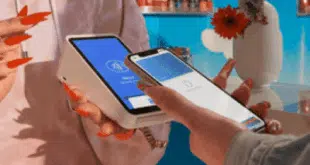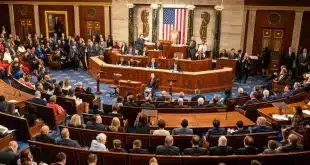A startup company led by the former head of a processor of automated clearing house transactions is readying a network that will allow consumers to use their driver's licenses to pay for goods at the point of sale. Boulder, Colo.-based Combined Payments Network LLC plans to formally unveil its product, called FastLane Secure Payments, at a major trade show for independent sales organizations in April. The new network will join a mounting effort by entrepreneurs to offer retailers payment systems that don't rely on the bank card networks, whose pricing policies have come under intense attack by merchant groups over the past year. “The market is really asking for an alternative to the existing credit card networks,” says Carl Towner, chief executive at Combined and formerly chief executive at First American Payment Processing Inc., a company he sold in November 2004 to concentrate on FastLane. Already, companies like Debitman Card Inc. and Pay By Touch Solutions have begun to make headway among merchants by marketing alternative POS payment systems that play to retailers' anger over rising bank card interchange fees. In the past six months, merchant groups have filed some 47 lawsuits against Visa, MasterCard, and assorted banks over interchange. Like Debitman, FastLane will rely on the ACH settlement network. And, like Pay By Touch, which links payments to consumers' fingerprints, it relies on something nearly ubiquitous among consumers?at least among those 16 years old and up. “I consider Pay By Touch to be our number-one competitor,” says Towner. He says FastLane's advantage lies in the fact that it requires little investment by merchants, since it depends on cards and POS devices already in the marketplace. FastLane will require a software download by client retailers. FastLane, which Towner says will be launched at the upcoming Electronic Transactions Association's exhibition in Las Vegas, will concentrate at first on offering merchants the ability to link loyalty and gift card programs to customers' driver's licenses. About half of the states issue mag-striped licenses, Towner estimates, and these cards account for about 70% of all drivers licenses issued. As consumers enroll in these programs, they will be asked to tie their checking accounts to their licenses as well. If they do, they will select a PIN and will be able to use their licenses as debit cards, with payments settling through the ACH. They will also use a seven-digit account number assigned when they swipe their driver's licenses or, as will be the case with licenses lacking mag stripes, enroll online. Later, Towner says FastLane will offer lines of credit as well, which will turn the government-issued pieces of plastic into credit cards. By April, Combined Payments will have set up three data centers to support consumer entrollment, drive messages to point-of-sale terminals, and switch transactions. FastLane will transmit encrypted transaction messages from terminals to the secure data centers, with critical information handled only on offline servers. Because of bank card costs and recent security concerns, FastLane will likely exclude Visa and MasterCard products, Towner says. The company plans to charge merchants up to 25 cents per transaction, but will return anywhere from a nickel to a dime to merchants for each FastLane transaction performed anywhere by a consumer enrolled by those merchants. It will also deliver short marketing pitches to POS terminals as transactions are processing, and will share marketing fees with merchants for each positive response garnered from customers. Under a $2 million agreement Combined Payments has struck with an unnamed mortgage company, for example, FastLane will charge the lender $4 per “yes” response and share half with merchants. Still, though he hopes FastLane could ultimately deliver transactions to merchants at little or no net cost to them, Towner says cost of payments is not his biggest selling point. “I'm not pushing cost, I'm pushing security and convenience,” he says. “We're really poking a finger in Visa and MasterCard's eye on security.” So far, Combined Payments has not marketed FastLane to merchants, though Towner hopes the introduction of the new network at the ETA show will attract ISOs to help sell the system. And, though FastLane is so far certified only on VeriFone terminals, Towner says other POS terminal makes will be added later. Towner and his partner, former transaction-processing executive Burt Walker, have funded the company with their own money, with $2.1 million in development cost incurred so far. “We're investing heavily and not seeking outside capital,” Towner says. In November 2004, Towner and other defendants paid almost $1.6 million to the Federal Trade Commission to settle a suit the FTC had filed in January alleging First American Payment Processing and other companies had processed ACH transactions on behalf of fraudulent telemarketers. The defendants also agreed not to process for telemarketers. Towner, who says he settled mainly to avoid further legal costs, says the telemarketing ban will have no effect on FastLane's prospects, since the product is focusing on point-of-sale merchants. He adds that FAPP had stopped processing for telemarketers nearly a year before the FTC filed its suit, that there had been six of them, and that the average length of time FAPP had processed for any of them was 90 days.
Check Also
The CCCA Goes Into Limbo As a ‘Clean’ GENIUS Bill Advances
Efforts to attach the Durbin-Marshall Amendment to the proposed GENIUS Act, a bill to regulate …





